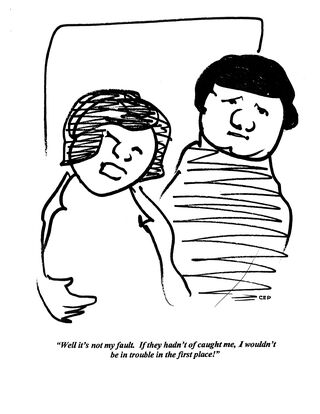Adolescence
Why It's Harder to Pay Attention When Adolescence Begins
Growth changes at the outset of adolescence can be disorganizing and distracting
Posted August 29, 2022 Reviewed by Devon Frye
Key points
- With the onset of adolescence, more mental slippage (inattention) often occurs.
- Changes in the adolescent, and in her or his growing world of experience, create more complexity of life to encompass.
- The young person is not suffering so much from attention deficit than from attention overload.
- Parents can coach key behaviors that enable more attention-paying to take hold.

One sign that adolescence has begun is when parents start hearing more lack-of-attention complaints from their daughter or son.
Mental Slippage
As mental slippage increases, the more out of control, ineffective, and anxious a young person can feel.
- “I can’t keep everything straight!” (And now things are misplaced.)
- “I can’t remember all I’m told!” (And now there is more forgetting.)
- “I can’t concentrate that long!” (And now focus is easily disrupted.)
- “I can’t finish what I begin!” (And now trust in capacity is lost.)
Frustrated parents may hear themselves complaining about their child’s increasing disorganization and distractibility. “If you’d just pay attention, more things would get done and fewer things would be lost!”
So what might be going on?
One Explanation for Teen Forgetfulness
Often the explanation may be that the onset of adolescence is complicating the child’s life in many changing ways that make concentration (the capacity to focus attention) harder to maintain. What kinds of changes? Consider these:
- Because multiple teachers assign simultaneous assignments, middle school demands more to keep track of than elementary school.
- Puberty changes one’s body in unexpected ways, creating more opportunities for self-consciousness and insecurity.
- As play groups become peer groups, there is more competitive pressure to fit in, keep up, stay current, and socially belong.
- As interest in acting older grows, the larger world of life experience becomes much more complicated to understand.
Add to these common adjustments what I believe are two drives that from here on will increasingly propel adolescent growth: detachment and differentiation. Detachment enables the young person to separate from childhood and parents to develop a more functional independence. Differentiation enables the young person to redefine from childhood and parents to develop a more fitting individuality.
Come the outset of adolescence (usually between the ages of 9 – 13), a very demanding developmental convergence occurs. As a host of growing older changes demand adjustment, at the same time the young person must contend with painful loss. They must let go of the relative security, stability, and shelter of childhood which must be left behind. "Sometimes I miss how simple life used to be!"
Why Are Teens So Scattered?
Why can the young teenager be so scattered? The answer often is it often feels too much to pay full attention to everything changing within and outside of themselves. This demand can overtax the energy (one's potential for thinking and action) that they have to spend. "I'm doing all I can, but it's not enough!"
Although commonly treated as though she or he is in some kind of attention deficit, in reality, the young person is often in attention overload. With so much going on, it’s very hard to maintain focus for very long. In the words of one parent: “Only the moment seems to matter!” With no time like the present, concentrating on just one thing, remembering the past, or considering the future can all feel harder to do.
How Parents Can Help
Seeking help, parents may be professionally advised to administer some stimulant medication that can increase attention paying in the brain, but also comes with some risk of raising more anxiety. With young counseling clients taking such medication, I usually asked if she or he felt it was helpful. Often the young person would report an increased capacity to focus and concentrate.
However, parents should remember that medication by itself has no educational value. It can ease the problem, but it can’t provide self-management instruction. And this is where parental coaching can helpfully come in.
The Role of Parental Coaching
Coach how? Begin by knowing what to avoid: expressing frustration, impatience, and criticism are not constructive responses. Punishing the young person for having any problem only makes constructive action harder to take.
Instead, first understand that as the young adolescent develops, her or his brain capacity to process more life complexity will be developing too. So have faith in this growing potential. Then second, to be supportive, help the young person practice self-management skills that enable catching hold as life often feels like it is in overdrive.
Often parents are not thanked for this assistance at the time. “Stop getting on my case!” So parents have some explaining to do. “Irritating as our demands may feel, what we are asking you to practice is not against you, but for you—to help you better manage the growing complexity of your life. Develop these skills for us and you will learn to do them for yourself.”
What kinds of skills? Consider a common few.
- Finishing strengthens confidence by following through.
- Reminding strengthens memory by improving recall.
- Analyzing strengthens capacity by problem solving
- Organizing strengthens confidence by ordering.
- Scheduling strengthens preparedness by planning.
- Supervising strengthens performance by checking.
- Prioritizing strengthens selection by ranking.
- Correcting strengthens performance by improving.
- Preparing strengthens readiness by anticipating.
- Owning strengthens control by taking responsibility.
- Honesty strengthens effectiveness by sticking to reality.
Such management skills can help the young person more effectively engage with the growing complexity of life. I believe when parents coach these skills, and when the adolescent practices these skills, self-management capacity, and confidence in that capacity, can be increased. Thus more power of attention paying can be gained.




